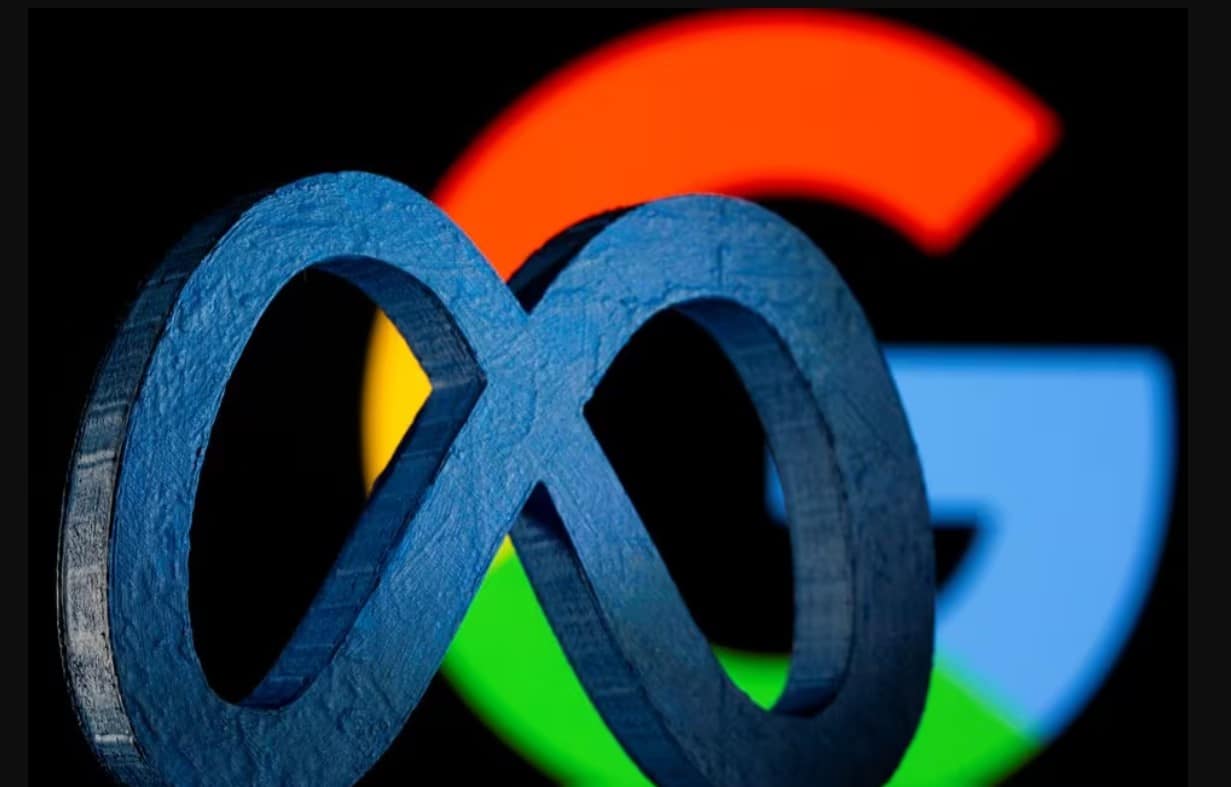Despite the buzz over generative artificial intelligence last year, the technology’s impact on the advertising business of Alphabet (GOOGL.O) and Meta Platforms (META.O) is likely to be muted when the companies report fourth-quarter results this week, though investors are mapping out its future potential.
The search giant has rolled out AI tools that help advertisers target audiences in a less costly way and decide how their marketing budgets should be distributed across Google’s ad network. Facebook parent Meta is using generative AI to create different variations of ad campaigns.
Generative AI, which can create text and photos from prompts, is still in the “hype cycle,” Bernstein analysts said in a research note earlier this month, but added that investors were now looking for “incremental use cases and revenue streams to spawn from these recent advancements.”
The core business of digital advertising is expected to have been resilient in the quarter ended Dec. 31, and warnings that economic and geopolitical uncertainty could dampen the ad market are likely to prove overblown, the brokerage said in a separate note last week.
Microsoft (MSFT.O), which is scheduled to report quarterly results on Tuesday, is likely to be the earliest winner in the nascent generative AI race, which has consumed nearly every tech and social media company from Amazon.com (AMZN.O) to Snap (SNAP.N). For Microsoft, generative AI has fueled demand for its cloud services.
Alphabet stock surged 58 per cent last year, while Meta’s stock nearly tripled. The broader S&P 500 index (.SPX) gained roughly a quarter in 2023, helped by an AI-fueled tech rally.
Going into 2024, “an additional catalyst … other than AI, will be the big focus on political advertising and will boost businesses at Meta and Google,” said D.A. Davidson and Co analyst Gil Luria.
Spending on political advertising in the U.S. will jump 30 per cent this year from the last presidential election in 2020, partly driven by higher spending on digital platforms, research firm Insider Intelligence has estimated.
On Tuesday, Google parent Alphabet is expected to report that fourth-quarter advertising revenue – its mainstay – grew 11.8 per cent to $66 billion, according to LSEG data.
Google introduced its experimental AI chatbot Bard early last year and launched what it calls a search generative experience (SGE) that generates written responses to some Google Search queries.
It rolled out SGE to 120 countries in November, but the new search experience could have very little impact on its business in the near-term.
By 2025, SGE could account for between $35.6 million and $113 million in incremental search advertising revenue in the “upside scenarios,” said New Street Research analysts in a research report in October, adding that the biggest factor depends on how often people click on ads shown in AI-generated responses.
Meta, the second-largest digital ad platform, has already proven that its work in AI can produce results for its advertisers.
In a survey of advertisers who tested Meta’s AI tools that can generate images and backgrounds for ads, half said they estimated the tools could save them at least five hours of work per week, Bernstein analysts said.
After cautioning in October that the Israel-Hamas conflict could hurt ad spending, analysts estimate Meta will report $39.1 billion in fourth-quarter revenue on Thursday, at the higher end of Meta’s guidance.
A suite of AI tools that automatically finds potential customers and tests which ads will perform best is earning $10 billion on an annualized basis, Meta has said.
If the company introduces paid ads later this year within the AI assistants it recently launched to answer questions inside WhatsApp, Messenger and Instagram, it could generate $6.7 billion in ad revenue in 2025, New Street Research estimated.
Such ads could also be a much-needed boon for Snap (SNAP.N), owner of photo messaging app Snapchat, which partnered with Microsoft (MSFT.O) in September to place sponsored product links in its chatbot called My AI.
New Street Research estimated Snap will earn $234 million this year from these links, which will grow to $686 million in 2025, or more than 11 per cent of annual revenue. Analysts estimate Snap will report fourth-quarter revenue of $1.4 billion, up 5.7 per cent from the previous year.
Amazon.com, which will begin showing ads on its Prime Video service this week, is building partnerships for Amazon Bedrock, a service that lets businesses create applications with a range of AI models, RBC Capital Markets said.
The launch of Prime Video ads could boost Amazon’s ad revenue growth by 5 per cent to 10 per cent, RBC Capital Markets said in its 2024 outlook report. The retail giant reports results on Thursday.







Click here to change your cookie preferences